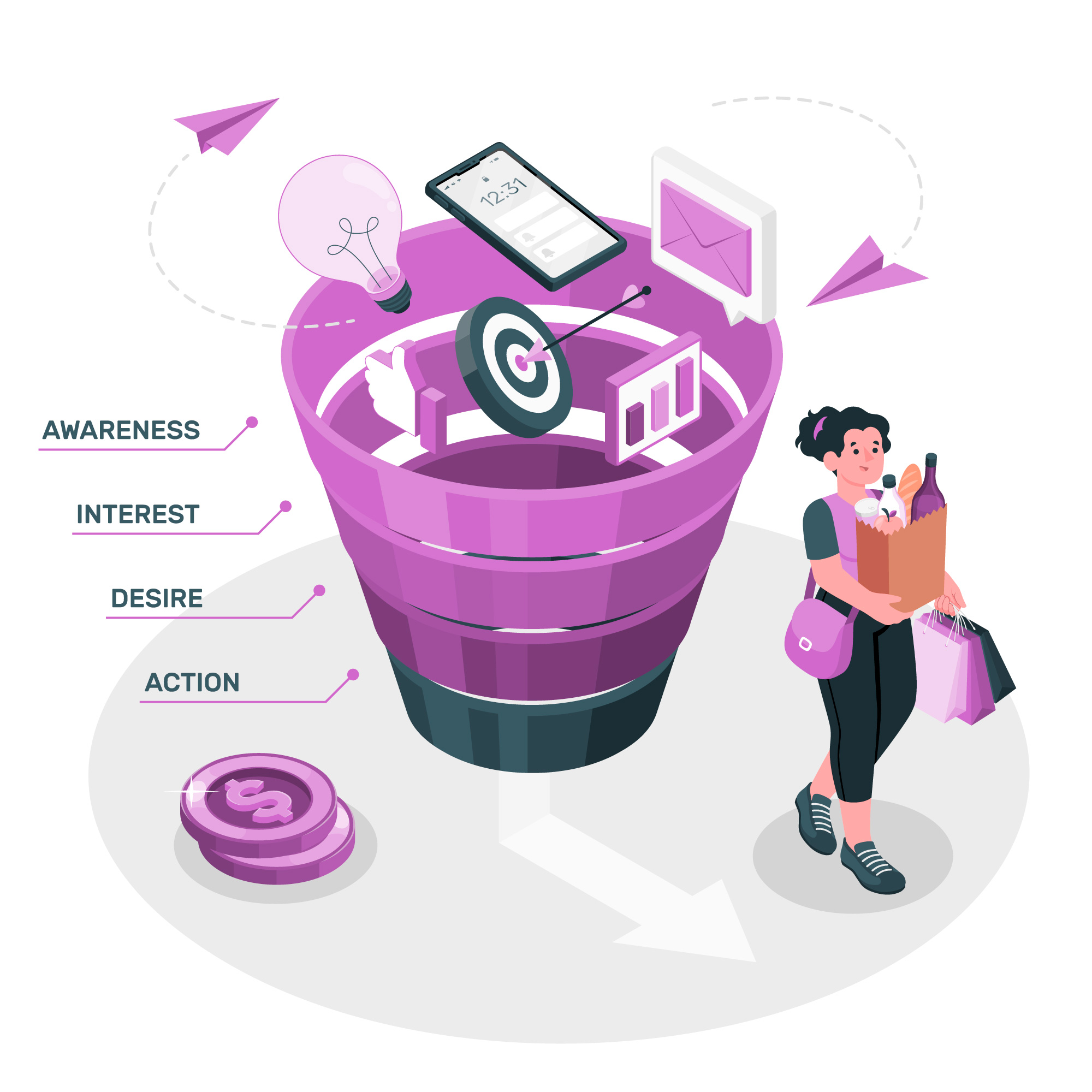In the world of B2B marketing, the journey from Marketing Qualified Lead (MQL) to Sales Qualified Lead (SQL) is often a long and winding road. Traditionally, this process involves numerous touchpoints, follow-ups, and nurturing efforts that aim to move leads further down the sales funnel. However, with the advent of content syndication, this journey is being dramatically transformed. Content syndication, when executed effectively, can accelerate the movement of leads through the funnel, improving both the quality and conversion rates of leads from MQL to SQL.
In this blog, we'll explore how content syndication is changing the B2B sales funnel and what businesses can do to leverage this powerful strategy to turn MQLs into high-value SQLs.
Understanding the MQL to SQL Transition
The shift from MQL to SQL is a crucial step in the B2B sales process. An MQL is typically a lead that has shown interest in your business by engaging with marketing efforts—whether by downloading content, signing up for newsletters, or visiting the company website. However, MQLs are not yet sales-ready and require further nurturing before they are handed off to the sales team.
On the other hand, an SQL is a lead that has demonstrated a higher level of interest and engagement, making them ready for direct outreach by the sales team. The challenge for marketers is how to move MQLs further down the funnel to become SQLs in a way that is both efficient and effective.
This is where content syndication comes in as a game-changer.
How Content Syndication Accelerates Lead Qualification
1. Wider Reach for Targeted Content
Content syndication allows businesses to distribute their content across a wide range of platforms, reaching potential leads who may not have interacted with the brand otherwise. By distributing high-quality, targeted content, businesses can engage with MQLs who are already interested in their products or services.
This exposure helps accelerate the lead nurturing process by providing MQLs with valuable information that addresses their pain points, educates them about your offerings, and builds trust. As MQLs consume more content and engage with it, they naturally move closer to becoming SQLs.
2. Data-Driven Lead Scoring
One of the key challenges in the MQL to SQL transition is determining which leads are ready for sales outreach. Lead scoring, which involves assigning points based on lead engagement, helps marketers assess the quality of their leads. Content syndication platforms can track how leads interact with syndicated content across multiple channels—whether they read blog posts, watch webinars, or download white papers.
This engagement data provides marketers with a clear picture of how interested the lead is, allowing them to score leads based on their likelihood to convert. As a result, only the most qualified leads are passed to the sales team, improving conversion rates and reducing wasted effort on leads that aren’t yet ready to buy.
3. Personalized Lead Nurturing
Not every MQL follows the same path to becoming an SQL, which is why personalized lead nurturing is essential. Content syndication enables businesses to deliver the right content at the right time, based on a lead’s behavior and preferences. By analyzing engagement data, marketers can predict which type of content will resonate with a lead, allowing for personalized follow-ups that speak directly to their needs and interests.
This level of personalization builds trust and strengthens the relationship with potential buyers, making them more likely to convert into SQLs. By delivering content that’s relevant to the lead’s stage in the buying journey, businesses can significantly shorten the sales cycle.
Content Syndication and the B2B Sales Funnel: Key Benefits
1. Accelerating Lead Progression
The traditional B2B sales funnel can be slow, with MQLs spending extended periods in the nurturing phase. Content syndication helps speed up this process by delivering highly relevant and valuable content to leads at scale. By keeping leads engaged with fresh content, businesses can accelerate their movement through the funnel, turning MQLs into SQLs more quickly.
2. Increasing Lead Quality
One of the main benefits of content syndication is its ability to attract more qualified leads. By distributing content to targeted audiences across a variety of platforms, businesses can engage with leads who are actively looking for solutions. These leads are more likely to convert because they have already expressed interest in the type of content being shared.
Additionally, as leads engage with syndicated content, businesses gain a clearer understanding of their needs and behaviors, making it easier to tailor follow-up efforts. This ensures that only the highest quality leads are passed to the sales team.
3. Enhancing Alignment Between Marketing and Sales
For the MQL to SQL transition to be successful, marketing and sales teams need to be closely aligned. Content syndication fosters this alignment by providing real-time data on lead behavior and engagement. When both teams have access to the same data, it becomes easier to determine when a lead is ready for a sales handoff.
Moreover, content syndication allows for more seamless communication between marketing and sales, as marketers can provide insights into the type of content that leads are engaging with. This enables sales teams to approach SQLs with personalized, relevant information that makes closing deals more likely.
4. Maximizing ROI
Content syndication is a cost-effective way to reach a larger audience and generate higher-quality leads. By nurturing leads through targeted content, businesses can increase conversion rates without spending excessive resources on traditional lead generation methods. The ability to track engagement metrics also ensures that marketing efforts are focused on leads with the highest potential for conversion, maximizing ROI.
Best Practices for Optimizing Content Syndication in the Sales Funnel
1. Segment Your Audience
To get the most out of content syndication, it’s important to segment your audience. Not all leads are at the same stage in the buyer journey, and different types of content will resonate with different segments. By segmenting your audience based on behavior, demographics, and engagement, you can ensure that the right content is delivered to the right leads, helping move them from MQL to SQL.
2. Use Multiple Content Formats
Different leads engage with different types of content. While some may prefer long-form blog posts, others might be more inclined to engage with video content, infographics, or case studies. By using a variety of content formats, businesses can capture the attention of a wider range of leads and keep them engaged throughout the nurturing process.
3. Track Engagement Metrics
To ensure that your content syndication efforts are effective, it’s essential to track engagement metrics. These metrics provide insights into how leads are interacting with your content and which pieces of content are most effective in moving them through the funnel. This data allows businesses to optimize their content syndication strategy and focus on the tactics that generate the best results.
Conclusion
Content syndication is changing the B2B sales funnel by accelerating the MQL to SQL transition, improving lead quality, and enhancing alignment between marketing and sales. By delivering targeted, high-value content to the right audiences at the right time, businesses can nurture leads more effectively and increase their chances of conversion.
As businesses continue to refine their lead generation strategies, content syndication will play an increasingly important role in transforming how MQLs become SQLs, ultimately driving better results and higher ROI.




